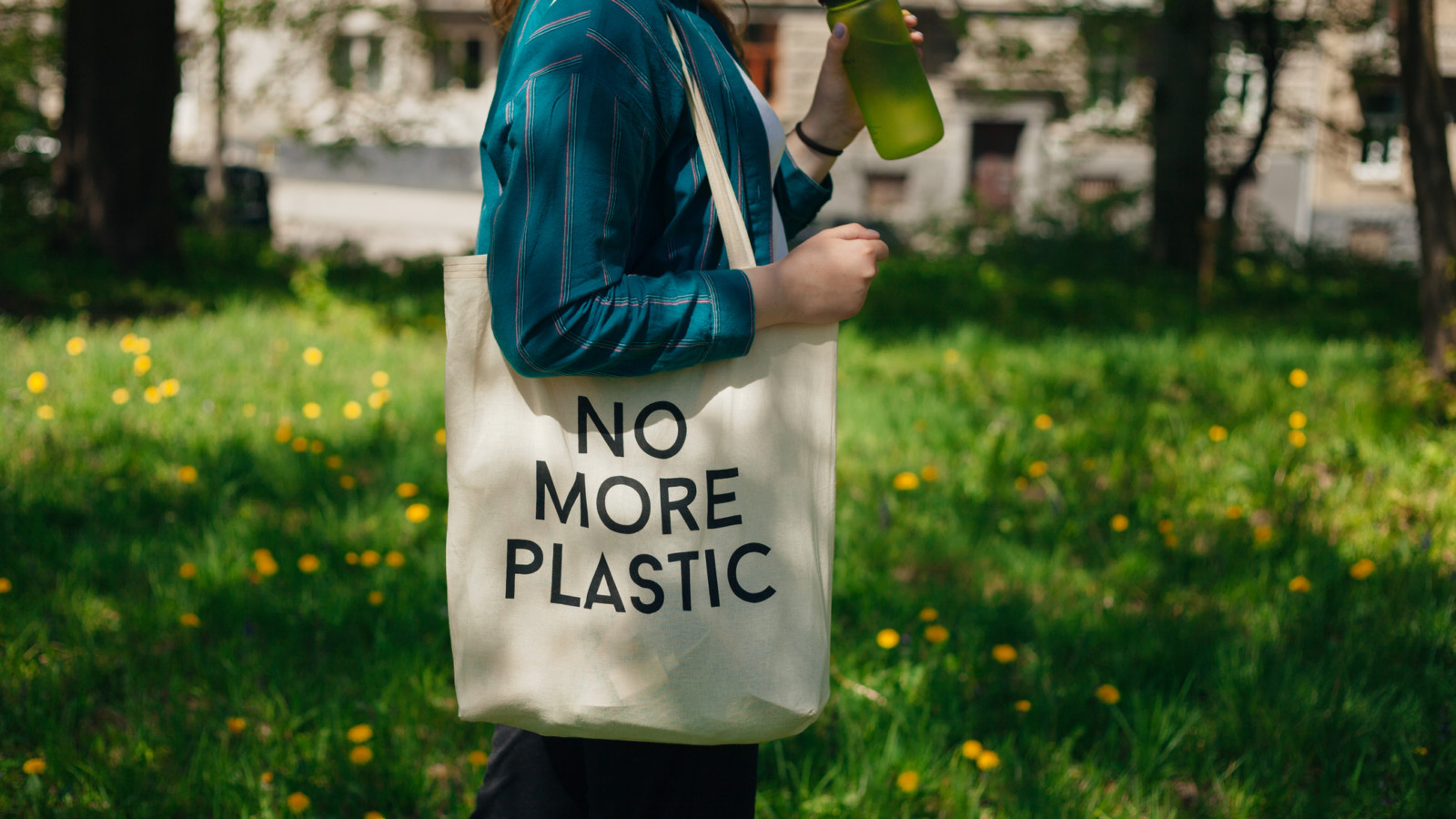We’ve been thinking about the individual actions we can take to help protect the environment, like cutting down on our use of plastic bags and bottles, or riding our bikes instead of driving. After all, small actions can make a big difference when it comes to reducing our carbon footprint and protecting our environment.
We asked our Thrive community to share with us the small efforts they are making to help take care of the environment. Which of these ideas will you try?
Swap plastic straws for metal ones
“As a sustainable swimwear designer,I always say, ‘You can not have a sustainable brand without living the lifestyle.’ With that, I incorporate using and bringing my metal straws and shopping bags with me everywhere, I do not buy paper towels or napkins, I use reusable towels, and I stay away from products that have too much packaging.”
—Ashley-Victoria Smith, swimwear designer, Charlotte, NC
Eat a plant-based diet
“I’ve been a vegetarian since my junior year in high school. It’s my way of standing up for animal rights, and as a result, it helps protect the environment by reducing global warming and pollution. I love animals way too much to eat them! As a bridal personal trainer, I offer healthy vegetarian options to all the brides I work with, which hopefully encourages them to eat more plant-based foods, even if they don’t opt to be a vegetarian full-time.”
—Stephanie Thomas, bridal personal trainer, Annapolis, MD
Reuse shopping bags
“We have added a recycle bag for plastic bags. We use the plastic from bread bags, and we rinse out used bags and we bring to the stores that have a bin for bags to be recycled or our local public school that has a bin to recycle plastic bags.”
—Dianna O’Connell, master data, Collegeville, PA
Start a backyard garden
“Gardening has always been something that brings me personal joy and allows me the opportunity to enjoy being outdoors. I am also a big fan of the honey bees and recognize how important they are to our ecosystem. With that in mind, I am able to help the environment through my gardening by planting flowers, trees and vegetables that create a wonderful pollinator habitat in my yard. They are amazing creatures to watch and it is gratifying to know that my hobby is also having a positive impact on something so important.”
—Suzanne Schnaars, senior manager, NJ
Buy secondhand clothing
“I buy most clothes for me and my family secondhand, and get as many repairs made as feasible before putting a garment into recycling. We avoid buying items that need dry-cleaning, too, and use vodka instead of taking clothes to the cleaners. It neutralizes smells and also means that the garment lasts longer.”
—Bianca Riemer, leadership coach, London, UK
Swap takeout for home cooking
“Aside from some of the more small yet sustainable actions I’ve taken at home (using biodegradable washing powder, using glass storage containers for leftovers, or making sure I put our recycling out every week) one of the most impactful actions I’ve taken is to make enough food for two to three days at a time. That way, when the urge for takeout arrives, I know I have lunch or dinner sorted and waiting in the fridge. It also means I don’t need to go out to the shops everyday, which reduces the need to drive. I used to see piles of takeout containers in trash at the end of the week, and now I’m down to only one small trash bag.”
—Bronwyn Menne, intern psychologist, Johannesburg, South Africa
Stock up on fruits and vegetables
“I help our environment by recycling as much waste as I can by trying to eat less meat and more fruits and veggies to cut down on our carbon footprint.”
—Joan Orlando, commercialization manager, Clarkston, MI
Bring silverware from home
“I used to use plasticware on my breaks at work, but now I bring my own washable silverware from home. Also, anytime I can fit items in my purse or easily carry them to the car while shopping, I let the cashier know I don’t need a plastic bag.”
—Teri Craig, receiver Walmart DC, Moberly, MO
Pause before you order online
“With the ease of online shopping also came an excess of shipping, cardboard boxes, packing material, and all the things we buy that end up as clutter later. I recommend to my clients to give themselves a 24-hour cooling-off period before they hit the pay now button to see if that’s what they truly need. For in-store shopping, I bring my own bags and always decline the department store hangers!”
—Jolene Monaco, professional organizer, Dallas, TX
Shift your attitude around plastic
“Even though plastic pollution is a huge problem for my town and our planet, I’m aware that plastic is not, on its own, horrible. The problem isn’t plastic itself — it’s our attitude towards plastic. For years I treated this wonder product like it’s something to use once and then throw away. Recently I’ve asked myself, ‘Should I really toss out something so amazingly waterproof, flexible, and lightweight?’ Instead of discarding plastic, I’ve challenged myself never, ever to buy new zipper-seal bags or plastic wrap. My attitude towards the ziplock bags and plastic wrap I have now has really changed! I wash them, treasure them, and reuse them.”
—Christine M. Du Bois, anthropologist, Lansdowne, PA
Follow us here and subscribe here for all the latest news on how you can keep Thriving.
Stay up to date or catch-up on all our podcasts with Arianna Huffington here.


